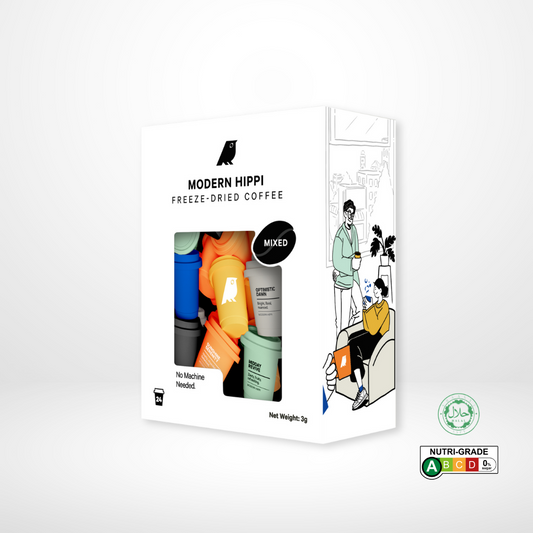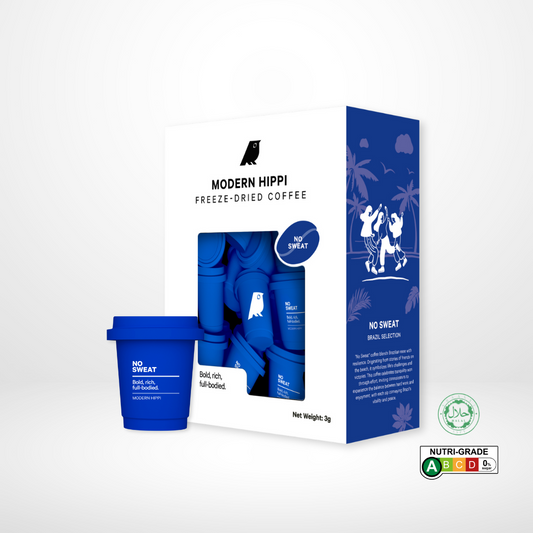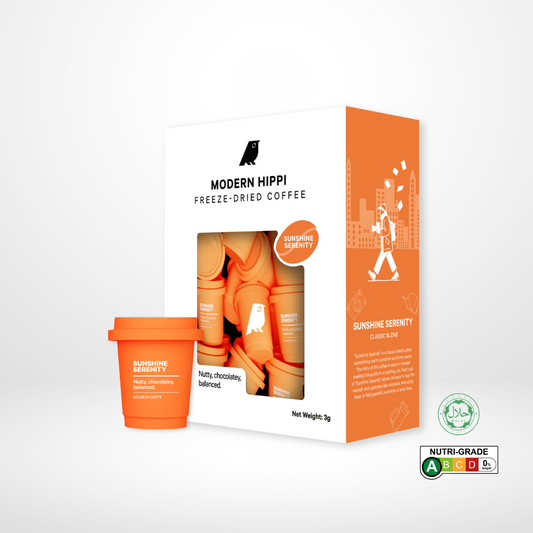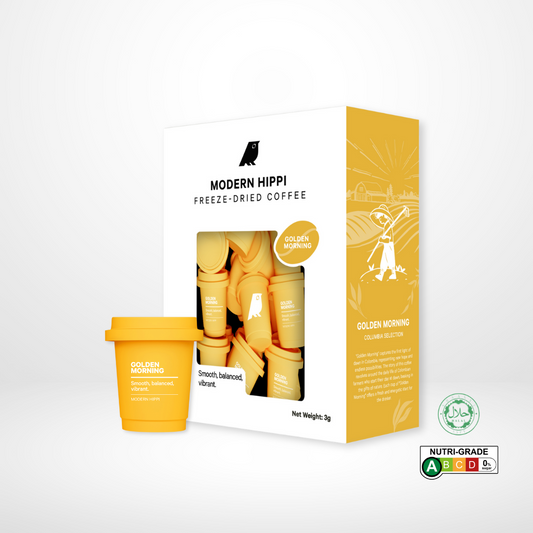The world of coffee has undergone a seismic shift in recent years. Once a straightforward drink defined by hot water and ground beans, today’s cup of coffee is a blank canvas for flavour, texture, and innovation. One of the most remarkable transformations? The creamer. While dairy milk reigned supreme for decades, the rise of plant-based alternatives has reshaped how consumers enrich their coffee. Once dominated by almond and oat milk, the coffee creamer market now boasts a new generation of contenders pushing the boundaries of taste, texture, sustainability, and health.
This article dives into the expanding universe of plant-based creamers beyond oat milk—an exploration of the ingredients, trends, and nutritional science driving this growth. We'll uncover why consumers are switching, which brands and ingredients are making headlines, and how innovations like freeze-dried speciality coffee are elevating the entire experience.
The Rise of Plant-Based Creamers: A Quick Recap
The global plant-based milk market was valued at over $20 billion in 2022 and is projected to reach $36.7 billion by 2030, according to Fortune Business Insights. The surge in demand isn’t just from vegans. Health-conscious consumers, sustainability advocates, lactose-intolerant individuals, and experimental foodies are all driving the momentum. While oat milk took centre stage in the 2020s for its creamy texture and barista-friendly frothability, consumers are now looking for options that offer more personalisation, nutrition, and unique flavours.
1. Pistachio Milk: A Creamy, Luxurious Surprise
Pistachio milk is emerging as the "new oat milk" in speciality cafes across North America and Europe. Slightly sweet with a nutty undertone, it blends well into espresso without overwhelming the flavour. Its rich fat content also mimics the mouthfeel of traditional cream, offering an indulgent experience without dairy.
Why it's trending:
- High in antioxidants and healthy fats.
- Naturally lower in sugar compared to oat milk.
- Sustainable in terms of water use compared to almond milk.
Stat to Know: Pistachio milk sales grew by 49% in 2023 in premium café settings (Mintel Beverage Report, 2024).
2. Macadamia Milk: The Velvet Revolution
Macadamia milk has carved a niche for itself as a high-end alternative with an ultra-smooth texture and a subtle, buttery flavour. It performs exceptionally well in both hot and iced beverages due to its low separation rate and high creaminess.
What makes it special:
- Excellent source of monounsaturated fats.
- Low carb and keto-friendly.
- Sustainable when sourced from regenerative farms.
Market Insight: According to SPINS data, macadamia-based creamers saw a 34% year-over-year increase in retail sales in 2023.
3. Pea Protein Creamers: The Nutrient Powerhouse
Often overlooked, pea protein-based creamers offer both functionality and nutrition. Extracted from yellow peas, these creamers provide a protein-rich alternative with a surprisingly neutral taste. They're now being fortified with vitamins and minerals to cater to fitness and wellness enthusiasts.
Benefits:
- High protein content (up to 8g per serving).
- Neutral flavour that doesn't compete with coffee notes.
- Hypoallergenic and free from common allergens like nuts or soy.
Fact: The Journal of Food Science (2023) found pea protein to be one of the most digestible and sustainable plant proteins available.
4. Avocado Milk: The Green Gold Creamer
Avocado-based creamers are entering the scene with their signature creaminess and nutritional punch. Made from cold-pressed avocado and blended with coconut or pea milk, this alternative is packed with omega-3s, potassium, and fibre.
Why it’s captivating health-conscious consumers:
- Anti-inflammatory properties.
- Rich in vitamins K, E, and B6.
- Natural emulsification helps with consistency in frothing.
Growth Potential: While still niche, avocado milk is now served in over 150 cafés across Southeast Asia and California, according to the Specialty Coffee Association (2024).
5. Sesame Milk: The New Plant-Based Dark Horse
Sesame milk is gaining traction for its rich calcium profile and sustainable sourcing. High in iron and calcium, it’s ideal for those seeking nutritional balance without compromising flavour.
Unique Traits:
- Robust, nutty flavour profile.
- Naturally rich in plant-based calcium (up to 30% of RDA).
- Low water usage in farming.
Nutrition Note: One serving of sesame milk provides more calcium than cow’s milk, according to USDA nutrient data (2023).
6. Barley Milk: A Grain-Based Creamer for the Eco-Conscious
Barley milk is the latest entry into the grain-based segment. It provides a slightly sweet, malty flavor and performs well in steamed drinks. It’s particularly suited to lattes, giving them a cereal-like undertone.
Why it stands out:
- Lower carbon footprint compared to rice and almond milk.
- Good source of beta-glucans, linked to improved heart health.
- Ideal for hot beverages due to heat stability.
Trend Insight: In Nordic countries, barley milk adoption in café menus grew by 27% between 2022 and 2023 (Nordic Food Research Institute).
Why Consumers Are Shifting
Today's consumers want more than just “non-dairy”. They’re seeking:
-
Functional Benefits: From improved digestion to brain health.
-
Sustainable Sourcing: Brands that prioritise water-efficient and ethical farming.
-
Flavour Exploration: Creamers that complement rather than mask the coffee experience.
-
Label Transparency: Fewer additives, minimal sugar, and fortification with real nutrients.
This has led to a boom in artisanal and small-batch plant-based creamer brands, offering bespoke blends made with everything from tiger nuts to flaxseed.
The Specialty Coffee Movement’s Influence
Third-wave coffee culture, with its emphasis on transparency, origin stories, and craft, has further fueled the demand for premium, plant-based creamers. Baristas now offer pairing recommendations for specific beans and plant milks to enhance flavour synergy.
For example:
- A light Ethiopian roast may pair beautifully with sesame milk for nutty complexity.
- A dark Sumatran blend might benefit from the buttery smoothness of macadamia milk.
Coffee and Health: The Bigger Picture
Recent studies suggest that coffee itself contributes to cognitive enhancement, antioxidant protection, and improved metabolic rates. However, the creamer added can either elevate or diminish these benefits.
Harvard Health (2024) notes that plant-based creamers low in added sugars and rich in fiber or healthy fats amplify the positive effects of coffee, particularly when consumed as part of a balanced diet.
Freeze-Dried Specialty Coffee: Elevating the Experience
The creamer revolution wouldn’t be complete without considering the base—coffee itself. While traditional brewing remains popular, freeze-dried speciality coffee is redefining convenience without compromising flavour.
Unlike conventional instant coffee, freeze-dried speciality coffee uses a low-temperature dehydration process to retain the complex flavours and aroma of single-origin beans. The result is a cup that tastes freshly brewed—with none of the time-consuming prep.
Why it pairs perfectly with modern creamers:
- Dissolves instantly in both hot and cold liquids.
- Preserves the nuanced flavour, allowing plant-based creamers to complement rather than overpower.
- Ideal for travel, camping, or minimalist lifestyles.
Some speciality brands even offer curated bundles that include freeze-dried coffee paired with specific plant-based creamers, appealing to consumers who value quality, ethics, and efficiency.
Final Thoughts: The Future Is Flavorful and Functional
As consumer demand for plant-based innovation continues to grow, the coffee creamer scene is no longer a two-horse race between soy and oat. From pistachio to barley, the future of coffee is diverse, nutrient-rich, and sustainably sourced.
Whether you're a home brewer, a barista, or someone who just enjoys a good cup, these new creamers offer a world of opportunity to explore and elevate your coffee ritual. When combined with innovations like freeze-dried speciality coffee, the daily brew becomes not just a habit but a curated experience—flavourful, mindful, and perfectly tailored to modern living.
So next time you're crafting your cup, ask yourself—not just "milk or no milk", but "which plant is your flavour muse today?"







